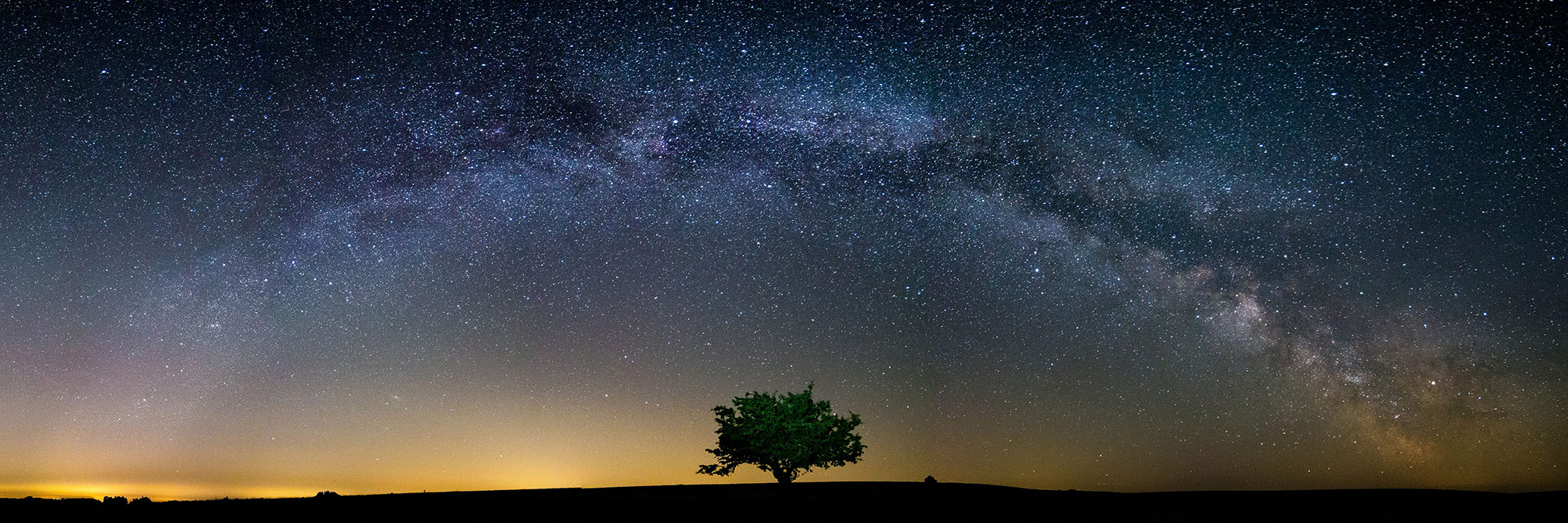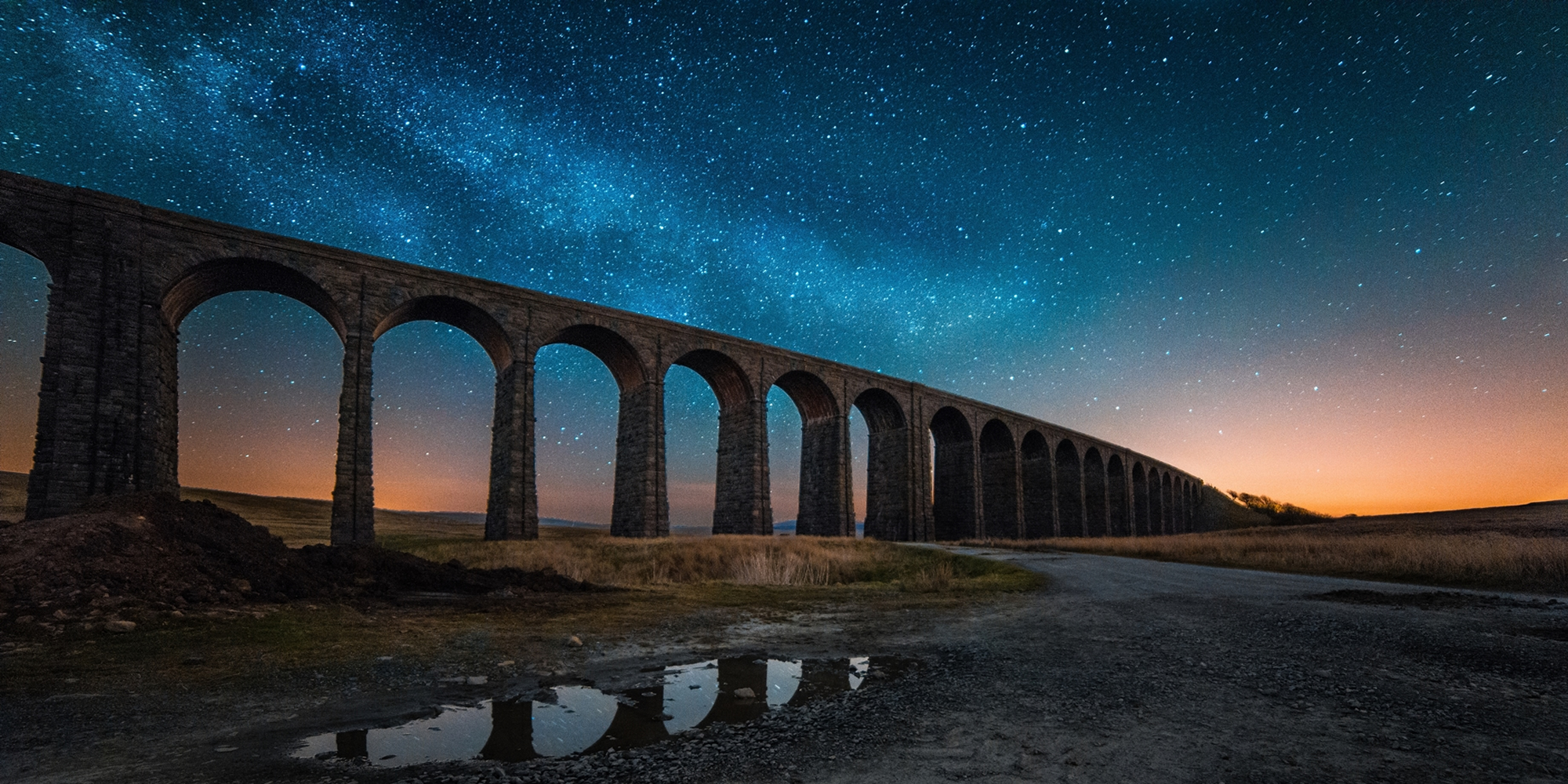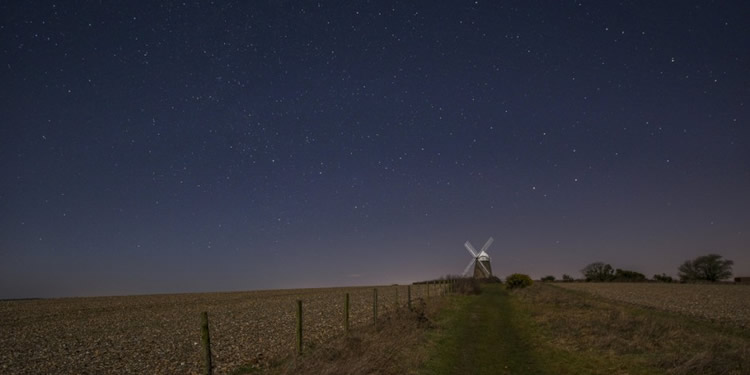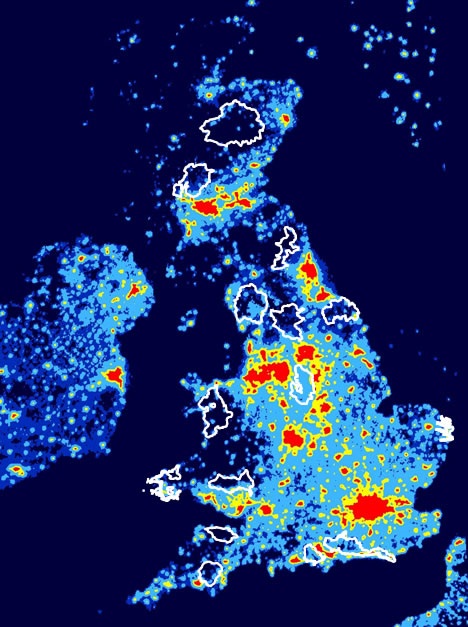
The vast landscapes of our National Parks are stellar places to gaze at the stars and get lost in the cosmos.
Dark skies are areas where you can look at the night sky without the light pollution created by street lights, neon signs and industrial lighting. Across the UK's 15 National Parks there are a number of locations that have been awarded International Dark Sky Reserve or Dark Sky Discovery Site status, making them the ideal places for a spot of stargazing. There are also special stargazing events run by the Park authorities and their partners to help you fall in love with the night sky.
We're especially proud that of 13 International Dark Sky Reserves in the world, the UK has four - the Brecon Beacons, Exmoor, Snowdonia and the South Downs National Parks, and that at the end of 2018 Tomintoul and Glenlivet in Cairngorms National Park has been designated one of only 63 Dark Skies Parks in the world!

Each year, the National Parks family runs a joint festival to celebrate our amazing dark skies. The 2019 Dark Skies Festival features Northumberland, North York Moors, South Downs and Yorkshire Dales National Parks and runs from 15 February through to 3 March.
There is a range of events suitable for all including families, first-timers and those wishing to expand their knowledge of astronomy further. Or you can make your own fun and join in the celebrations by getting out for a night walk, astrophotography session or even a spot of caving!
To find out more visit the festival website or read on for some great tips on stargazing in the National Parks.
Status: International Dark Sky Reserve awarded February 2013.
One of only a handful of International Dark Sky Reserves in the world following a long-running campaign to demonstrate the National Park's outstanding dark sky qualities. Residents and visitors are encouraged to prevent light pollution and take an interest in the night sky.
Status: International Dark Sky Park awarded November 2018 at Glenlivet Estate.
The Glenlivet and Tomintoul area in the Cairngorms National Park are delighted to have recently been awarded International Dark Skies status and it is also the most northerly Dark Sky Park in the world. Not only does this remote area have stunning dark skies but it also has easy access allowing everyone to enjoy a night sky brimming with stars and offers the best chance for a view of the Aurora Borealis (northern lights) too.
Status: International Dark Sky Reserve awarded 2011.
Exmoor National Park is a world-renowned stargazing destination and was Europe's first International Dark Sky Reserve.
Status: 1 Dark Sky Discovery Site at Low Gillerthwaite Field Centre (CA23 3AX).
Located in Ennerdale, England's most remote valley, and with the nearest public road 2 miles away, Low Gillerthwaite field centre runs special star-gazing events throughout the year.
Status: International Dark Sky Park (Gold tier) awarded in 2013.
The whole of the National Park together with neighbouring Kielder Water & Forest Park makes up Northumberland Dark Sky Park, nearly 1,500 square kilometres of dark, starry skies.
Status: Dark Sky Discovery Sites at Danby (YO21 2NB) and Sutton Bank (YO7 2EH) National Park Centres plus Scarborough & Ryedale Astronomical Society Observatories in Dalby Forest (YO18 7LT).
The Scarborurgh and Ryedale Astronomical Society hold stargazing events at Dalby forest. The North York Moors National Park Authority teams up with experts from York Astronomical Society to hold an annual stargazing event each November at Sutton Bank National Park Centre.
Status: 3 Dark Sky Discovery Sites at Surprise View (S32 1DA), Parsley Hay (SK17 0DG) and Minninglow (DE4 2PR).
For a National Park in touching distance to a number of major cities, the Peak District offers some great locations for stargazing with three accessible Dark Sky Discovery Sites.
Status: 8 Dark Sky Discovery Sites at Bosherston South car park, Garn Fawr car park (SA64 OJJ), Kete car park (SA62 3RR), Martin's Haven car park (SA62 3BJ), Newgale Beach car park (SA62 6BD), Poppit Sands (SA43 3LN), Skrinkle Haven (SA70 7SD) and Sychpant picnic site (SA65 9UA).
The Pembrokeshire Coast is one of the best places in the UK to view the night sky and has 8 amazing Dark Sky Discovery Sites for you to visit.
Status: International Dark Sky Reserve awarded 2016.
In May 2016, the South Downs joined a number of other National Parks in becoming an International Dark Sky Reserve - this is celebrated yearly in the Dark Skies Festival with lots of fun events.

Status: International Dark Sky Reserve awarded in 2015.
Snowdonia National Park was awarded International Dark Sky Reserve status on 4 December 2015, making it the fourth UK National Park to be acknowledged by the International Dark Sky Institute for efforts to prevent and reduce light pollution, thereby protecting the view of the night sky.
Status: 4 Dark Sky Discovery Sites at Hawes (DL8 3NT) and Malham (BD23 4DA) National Park Centres, Buckden National Park Car Park (BD23 5JA) and Tan Hill Inn (DL11 6ED).

This map shows light pollution levels across Britain. We've added the locations of the national parks, and you can see that we match up with some of the darkest spots in the country. So, if you're visiting any of our National Parks, stay up late on a clear night and enjoy some extra stars.